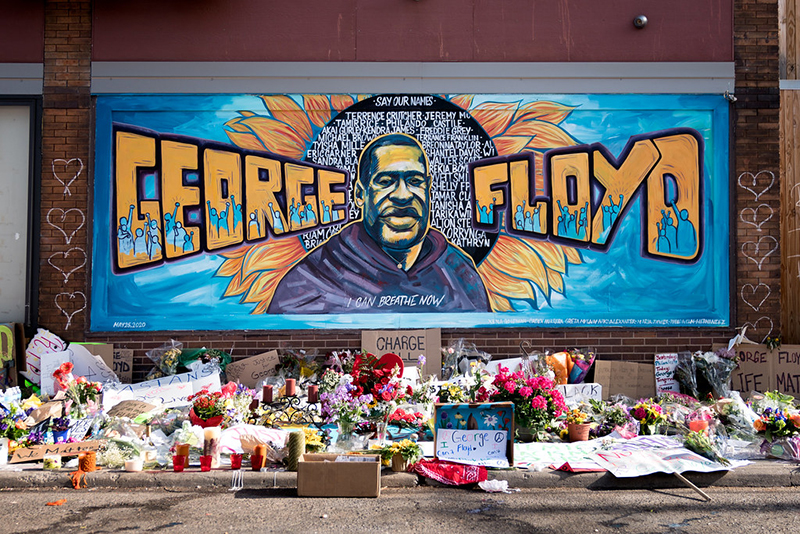Minneapolis Police Officer Derek Chauvin murdered George Floyd two years ago today on May 25, 2020. And a lot has changed in the last two years. I was lucky enough to interview some leaders in criminal justice reform about the two-year mark of Mr. Floyd’s death for MacArthur Foundation’s Safety and Justice Challenge this week—you can read what they had to say over at the SJC website. A pattern in the conversation was that there’s been a popular narrative shift since the Black Lives Matter protests of 2020 gave rise to calls to “defund the police.”
“In an ideal world, we want to believe that our elected officials are moved by data and facts,” one organizer told me. “But right now, there is this very dangerous narrative moving us back towards the 1990s’ ‘tough on crime’ approach.”
Many elected leaders are moved by such narratives because they also move voters. Just as defunding the police was a major narrative in 2020, the new popular narrative is that police are under-resourced, and crime is out of control.
Narratives are powerful, no matter what the statistics say—and they show that violent crime remains historically low. I spent a lot of my time in journalism covering law enforcement. I went through a citizen’s police academy. I fired guns on police shooting ranges. I won awards for stories about corruption and overmedication of juveniles. I worked with District Attorneys and Public Defenders. I spent a lot of time in courthouses listening to judges and watching trials. I spent seven years making a documentary about the death in police custody of a man suffering with schizophrenia. I made friends with people on all sides of these conversations—including a few police officers. What I learned was that most people in America don’t want to engage with the complexity of the criminal justice system. We trust our elected leaders to do the hard work for us, and we just want to feel safe in our homes when we go to sleep at night. Beyond that, our tendency is to tune out when people tell us: “it’s complicated.”
But that’s bad for democracy. It makes it easier to tell populist stories. It’s easier to say “defund the police” than to work in collaboration with them to make sure people are treated justly. It’s easier to say “some people are bad” than to talk about historic disinvestment in public housing and systemic racism that all but dooms children in certain neighborhoods. It’s easier to say “there’s a problem with gun violence” than to talk about the systems that drive people to desperation. Let alone change them.
I’ve learned that real criminal justice reform takes time and commitment. Most of all it requires people with historic experience at the hands of the system to engage with people empowered to change it. It cuts both ways. There needs to be an open dialog on both sides, and we all need to be open to having our preconceptions challenged.
One thing that interests me is when politically conservative police officers believe in diversion programs. They’ll say: It doesn’t make sense for us to criminalize drug use if that means treating people for addiction and mental illness in a jail cell. Instead, it makes financial sense for communities to get those people into supportive housing where they’re able to address the underlying causes of their trauma and bad decisions. It doesn’t matter what you think of that, morally. It’s the smart thing to do for everybody. I happen to believe it’s morally important, too. I just don’t think we necessarily help ourselves when we turn every reform conversation into a moral argument.
One thing I resist is the idea that all police officers are bad people or “complicit.” Demonizing anyone in the criminal justice system by virtue of what they do for a living doesn’t jibe with my experience. It’s just as lazy as saying the police are there to “stop the bad guys.” It’s like saying “all writers are bad people.” Or “all referees are corrupt.” Like in any profession, there are good people, and bad people, and there are those who bring discredit upon themselves and the broader profession, like Derek Chauvin. But there are also those I’ve met who I believe, genuinely, have the best interests of their communities at heart. No matter what the roots are of policing.
I’ve learned that we only really achieve meaningful change in life by seeing people as individuals within the systems we want to change. I’ve also learned that people are amazing in their capacity to be generous, particularly in the most pressurized circumstances. On all sides. As we reflect on Mr. Floyd’s death and the changes that have come about in society since then, I hope more of us will understand the importance of engaging with the complexity beneath straightforward narratives around law enforcement and racial justice. Otherwise, we’re dooming ourselves to circle around these issues without making more progress towards their resolution. That, I believe, would be a real failure to honor Mr. Floyd’s legacy, and the legacies of countless other people like him. May he rest in peace.


